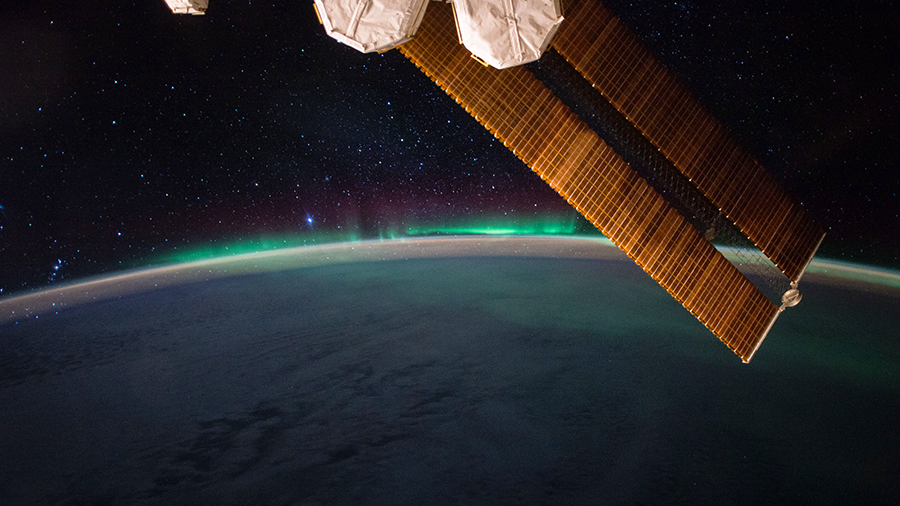
The three orbiting crew members living on the International Space Station today explored the effects of microgravity on mice and microbes to understand how living in space impacts humans. Cargo transfers are also underway on the orbital complex after the arrival of the latest resupply ship.
A pair of life science experiments observing mice are being worked today to research how the weightless environment of space impacts bones, muscles and the immunity system. For the Rodent Research-5 study today, NASA astronauts Peggy Whitson and Jack Fischer observed how drug therapies on mice may offset the negative health impacts of spaceflight. The duo also set up gear for a new study, the Multi-Omics Mouse experiment, which will be launched on the next Space Dragon mission and will evaluate the impacts of space environment and prebiotics on astronauts’ immune function.
The crew also collected saliva samples and stowed them in a science freezer for later microbial analysis on Earth. Station surfaces were also swabbed and air samples were taken to help scientists identify the microbes living on the station and how they may change on orbit.
Expedition 52 Commander Fyodor Yurchikhin continued unloading the 3,000 pounds of food, fuel and supplies delivered last week aboard the Progress 67 resupply ship. The veteran station cosmonaut also had some time set aside to update the station’s inventory system and check on Russian science experiments.
Get weekly video highlights at: http://jscfeatures.jsc.nasa.gov/videoupdate/

Congratulations! Great work Nasa.gov, and much appreciated for this new study. It is absolutely clear that we don’t have to wait many more years for traveling to outer space.